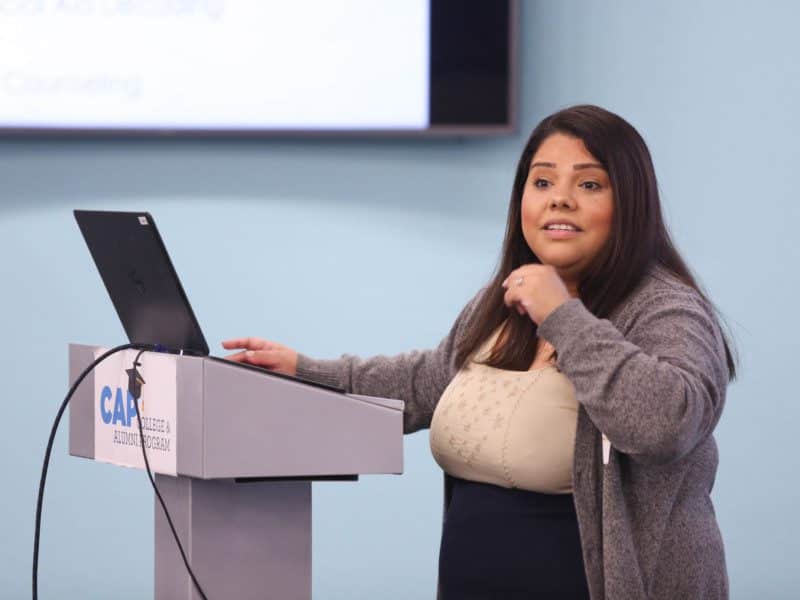Summer Melt Series: Finding the Right Financial Fit
by Ivette Chavez

This is the second in a series of blogs offering guidance on combating summer melt.
High school seniors have many questions to consider before committing to a college on signing day (May 1). But in my view, one question rises in urgency above the others. Are you choosing the institution that’s the best financial fit for you and your family?
I know the importance of finding the right financial fit first hand. As a first-generation college student, I had very little to no awareness about how to finance my college education. The day I arrived on campus as a freshman at UC Berkeley, I did not know who was paying for my college education. All I knew was that I had signed various documents and now had a dorm room, food, and classes. It was not until the end of my sophomore year that I learned I was taking out student loans to fund my education. When I read my financial aid award letter I had interpreted “Financial Aid” to mean free money for college. I will never forget feeling so alone and ashamed for not understanding something that seemed so simple. Since then, I’ve worked tirelessly to ensure this scenario doesn’t happen to more students.
Some high school seniors wait to try to figure out finances once they arrive on campus in the fall, but it’s very difficult to try to rectify a situation after the fact. When a student begins to struggle with paying for school they are at a considerable risk of dropping out of college, and the chances of them returning to complete their degree decrease as time goes by. That’s why it’s important to assess financial fit before committing to a college.
At CAP, we work closely with high school seniors and their families to choose the best-fit college for each family’s financial circumstance. During senior year our team takes each student and family through the entire college financial aid process from beginning to end, including setting up an FSA ID pin, completing the FAFSA and CSS profiles, and ensuring that all financial aid verification forms are submitted in a timely manner to each college campus.
At the end of this process, students receive financial aid award letters. These letters can be hard to interpret. When assessing these letters and trying to decide which college is the best financial fit, three factors are especially important to consider:
- Were you awarded student loans and for how much? Are they subsidized or unsubsidized?
- What is your unmet need after you consider all “free” forms of financial aid awarded to you?
- Can your family support you financially with any portion of your unmet need?
The goal is to really understand the complete cost of college and if the options you are considering are a financial fit for your family. Can your parents really afford to pay any out-of-pocket expenses while you are away at college? You want to make sure you have the money you need to make tuition and housing payments on time, to avoid being dropped from your classes. Having to worry about making your payments on time is a heavy burden to bear while trying to juggle your class schedule, midterms, and social life. Therefore, having a solid, affordable plan before you decide to commit to a college/university is very important.
One situation we see frequently is the question of whether to attend college far from home. I see many middle-class parents encourage their child to stay close to home and attend a college or university that is local to save on the housing expenses. However, when a student receives a decent financial aid award package from a college that may be out-of-state, it can be an economical option. Not letting a student attend school away from home can hinder the student’s social and emotional growth.
A college degree opens many doors and there are lots opportunities to find funding for college. Finding the college that’s the right financial fit increases your likelihood of arriving on campus in fall and graduating from that same campus. So, remember to ask the right questions before signing day.
Ivette Chavez is the lead college financial services coordinator at CAP.
